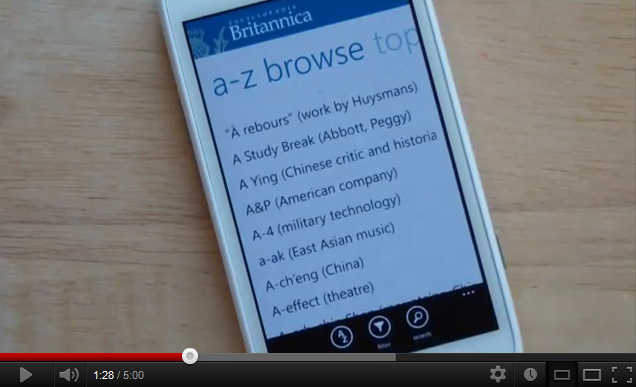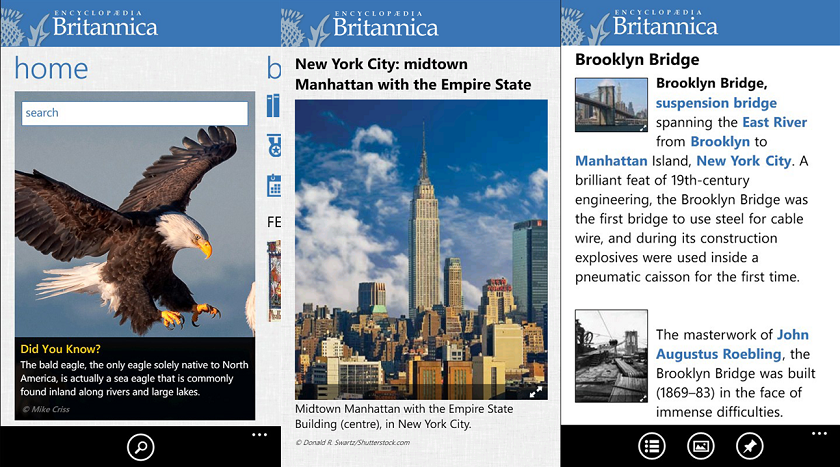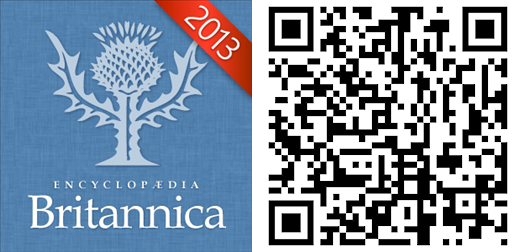Review - Official Encyclopedia Britannica app for Windows Phone

Yesterday we saw the release of the official Encyclopedia Britannica app for Windows Phone. The issue we had with the app was twofold: it fetches for $4.99 and there is no trial. On top of that, it looks like you have to pay that $4.99 a year to renew the app.
The question for many would be Is it worth it? Well, we ponied up for the app and show you what we think.
In essence, the official Encyclopedia Britannica app is well done. It’s fast, smooth and has a lot of features. In short, if you pay the $4.99 for this app you’ll get a fairly solid and reliable encyclopedia with offline saving abilities, pinnable entries to your Start screen, sharing options and a well done (but not totally Metro) UI.

But you know where this is going…with free services like Wikipedia out there, it’s hard to justify the $5 a year for this app when you can get the free and superbly done MyEncyclopedia (currently not available for some reason) app with no risk. Of course Britannica has been around forever, are considered more of an authority on issues and we understand they’re trying to redefine themselves in 2012 (the company just recently stopped printing actual encyclopedias).
So for $5 you get a solid app and are supporting a legacy company but for many of you, you’ll probably want to skip over this one as there is nothing exactly remarkable about it either except the quality of the content.
Pick up Encyclopedia Britannica here for $4.99 (no trial) in the Windows Phone Marketplace.

Get the Windows Central Newsletter
All the latest news, reviews, and guides for Windows and Xbox diehards.

Daniel Rubino is the Editor-in-chief of Windows Central. He is also the head reviewer, podcast co-host, and analyst. He has been covering Microsoft since 2007 when this site was called WMExperts (and later Windows Phone Central). His interests include Windows, laptops, next-gen computing, and wearable tech. He has reviewed laptops for over 10 years and is particularly fond of 2-in-1 convertibles, Arm64 processors, new form factors, and thin-and-light PCs. Before all this tech stuff, he worked on a Ph.D. in linguistics, performed polysomnographs in NYC, and was a motion-picture operator for 17 years.
